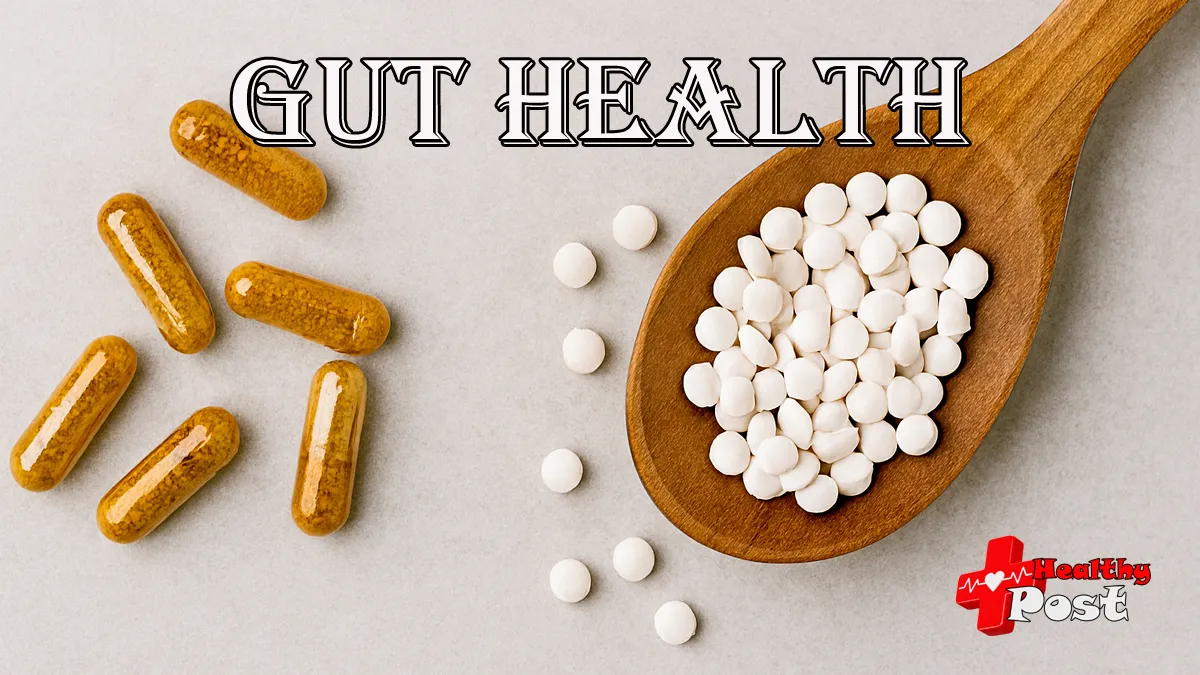
Digestive Enzymes vs Probiotics – Which is Best for Bloating, Digestion, and Gut Health?
Surveys show that up to 74% of Americans experience frequent gastrointestinal symptoms, which explains why digestive enzyme and probiotic supplements are becoming increasingly popular for improving gut health. But should you choose digestive enzymes or probiotics?
Before we begin, did you know that humans have been fascinated by bacteria since the 17th century, around the time scientists like Antonie van Leeuwenhoek first observed bacteria under a microscope?
Despite the groundbreaking discoveries of microbiology pioneers like Anthony , they initially viewed bacteria primarily as destructive and pathogenic. If asked to choose between probiotics (bacteria) and digestive enzymes, they would undoubtedly choose the latter.
But by the 21st century, our understanding had undergone a profound shift. Over the past two decades, we have gradually come to understand the critical role of bacteria, especially the gut microbiome , and the negative health effects of insufficient bacterial diversity and abundance.
Gut Health
However, gut health encompasses much more than just one aspect. We must also consider how efficiently we digest and absorb the food we eat. Now, let’s explore the concept of probiotics .
As you probably already know, probiotics are bacteria that are beneficial to human health. The word “probiotic” comes from the Greek word for “for life,” which aptly describes these microorganisms.
Fun fact: Your digestive system contains a five-foot-long organ called the large intestine, or colon.
The human body harbors over 100 trillion bacteria , or more technically, microbes. These microbes belong to thousands of different species and range from beneficial to neutral and potentially pathogenic. Together, they make up what’s known as the microbiome .
This complex ecosystem is as exquisite as a tropical rainforest in the intestines.
Healthy Microbiome
I’m guessing you’re curious about what a healthy microbiome looks like. In other words, how can we ensure that the 100 trillion bacterial residents in our bodies support, rather than hinder, our gut health ?
Just as a healthy rainforest needs a diverse array of plants and animals to thrive, your microbiome needs a variety of bacteria, yeast, and fungi species to maintain balance.
To illustrate the importance of this topic , I wanted to share a citation from a 2020 paper we recently read in the Journal of Digestive Diseases.
A diverse microbiome can improve digestion, enhance nutrient absorption, boost immune function, and provide protection against harmful bacteria and yeasts,” the researchers said .
A well-balanced microbiome has been linked to improved mood, skin health, cognitive function, and enhanced metabolism. However, an unhealthy microbiome can lead to dysbiosis —an imbalance between beneficial and harmful bacteria in the gut.
This imbalance disrupts our microbial ecosystem and can cause digestive issues like bloating, constipation, and diarrhea. To restore balance, rebuilding the gut microbiome by supplementing with probiotics (i.e., beneficial bacteria) can be beneficial.
To increase your probiotic intake, consider these three effective methods.
First, restore gut microbiome diversity by consuming probiotic-rich fermented foods like sauerkraut and kimchi.
Fermented drinks and probiotic foods
For those who find the taste more difficult, fermented drinks like kefir and kombucha offer more palatable options and are often favorites.
Detailed instructions for making these fermented foods can also be found in our video series.
Finally, if you have difficulty regularly consuming probiotic foods and drinks to support your gut flora, you may want to consider taking a probiotic supplement.
At Essential Stacks, we make these supplements, and while I hate to turn this into a commercial break, I must point out that choosing an effective probiotic supplement can be difficult because most products don’t provide a sufficient number of bacteria or a diverse range of strains.

Now you understand the importance of probiotics and how wrong our Dutch scientist friend Antonie van Leeuwenhoek was when he thought all bacteria were bad.
Let’s explore the role of digestive enzymes and why they are important.
Digestive enzymes
The first key point is that while probiotics are undoubtedly beneficial, gut health issues aren’t always caused by an imbalance in the bacterial flora. Sometimes the problem originates further up the digestive tract, such as in the stomach or small intestine, indicating inadequate digestion of food. In these cases, digestive enzymes play a more critical role.
The key to understanding this context is to realize that our bodies naturally and continuously produce digestive enzymes . These enzymes break down the food we eat into smaller components that our cells can use as energy.
For obvious reasons, a large steak cannot remain intact in the digestive tract. Instead, it must first be broken down through several processes, a key one of which involves the action of enzymes .
Natural enzyme production declines with age, an unhealthy diet, stress, and various health conditions. Inadequate enzyme production can lead to incomplete breakdown of food, which can cause uncomfortable digestive symptoms such as bloating, gas, and reflux.
Digestive enzyme supplement
In this case, consider taking a digestive enzyme supplement . This approach prevents digestive problems by increasing the number of beneficial microorganisms that help break down food.
When it comes to deciding which option is better, it’s clear that there’s no absolute winner. It all depends on your specific digestive issues and whether diet is the primary cause.
To conclude this video, we’ll briefly analyze when to choose each supplement.
Probiotics can address a wider range of health issues than digestive enzymes. This is due to the impact of the gut microbiome on multiple systems in the body, as demonstrated earlier in the video.
Studies have shown that probiotic supplementation can alleviate conditions such as irritable bowel syndrome , constipation, leaky gut , small intestinal bacterial overgrowth , and diarrhea.
Probiotics are thought to potentially be beneficial for non-digestive conditions such as depression , acne , and allergies .
When deciding whether to use digestive enzymes , they are a better choice if your primary issue stems from eating. While probiotics can help digest fiber-rich foods, their effectiveness is limited to this task.
In contrast, digestive enzyme supplements contain a variety of enzymes to help break down proteins, fats, carbohydrates, and fiber.
Pure enzyme supplements
However, as a comprehensive enzyme formula, our pure enzyme supplements may not be suitable for everyone. If only certain foods (such as dairy products) cause digestive issues, then using a broad-spectrum enzyme supplement may not be necessary.
Instead, a single enzyme supplement may be sufficient. For example, lactase can address lactose intolerance, alpha-galactosidase helps digest legumes, and the peptidase DPP-4 can help with gluten intolerance.
Conversely, if you experience bloating or other digestive issues without a clear cause , a broad-spectrum digestive enzyme supplement like Pure Enzymes may be the best solution.
To summarize our video, taking probiotics and digestive enzymes together is beneficial because they do not interfere with each other and provide complementary benefits.
However, we recommend avoiding unnecessary spending on supplements. It is beneficial to try each supplement individually to determine which works best for you.
For example, you could take probiotics for four weeks and observe how your symptoms change. If your symptoms improve, the probiotics alone may be enough.
If that doesn’t work, consider adding digestive enzymes to your daily diet .
In summary, both probiotics and digestive enzyme supplements can improve digestive system function in different ways.
Overall, digestive enzymes help with the complete breakdown of food, relieving bloating, gas, and indigestion, while probiotics replenish the gut microbiome, benefiting both digestive health and overall well-being.
We invite you to share your experiences: Which method worked best for you?
Please share your thoughts in the comments below. If you found this video in our digestive system series helpful, don’t forget to like and subscribe to get our latest content.
Essential Stacks’ team of nutritionists and doctors research foods and supplements that promote gut health . This research helps you avoid a lot of trial and error, allowing you to focus on achieving optimal digestive health.

4 thoughts on “Digestive Enzymes vs Probiotics – Which is Best for Bloating, Digestion, and Gut Health?”